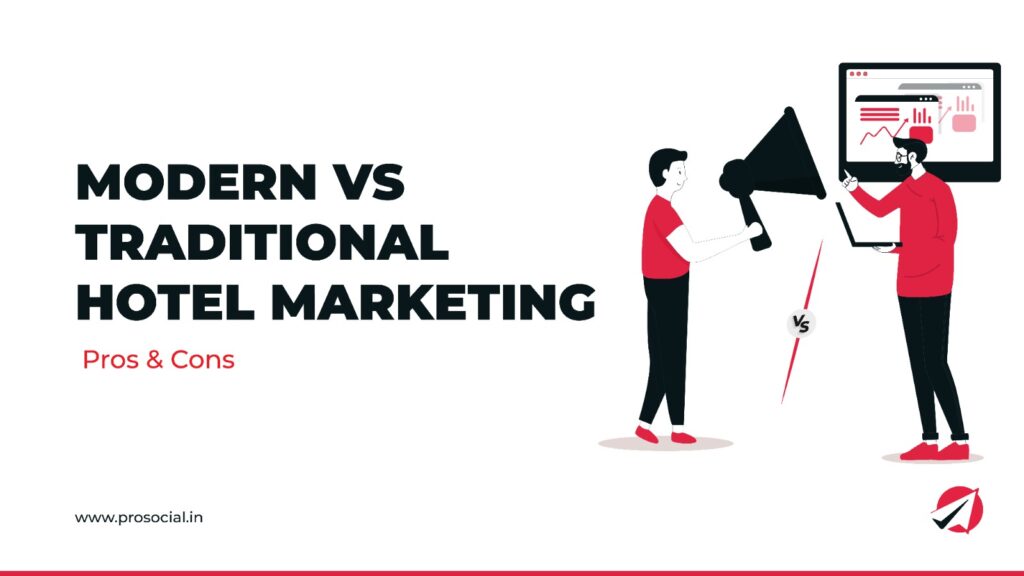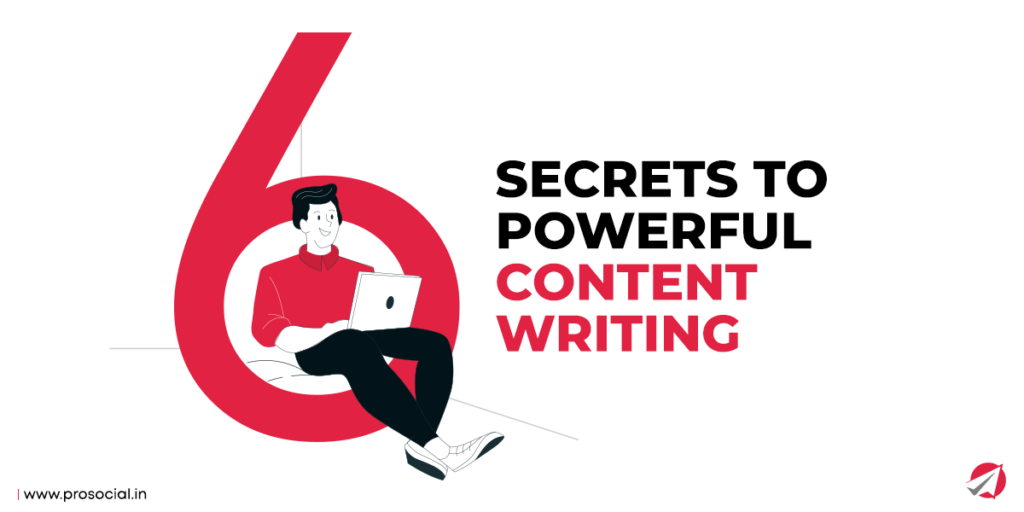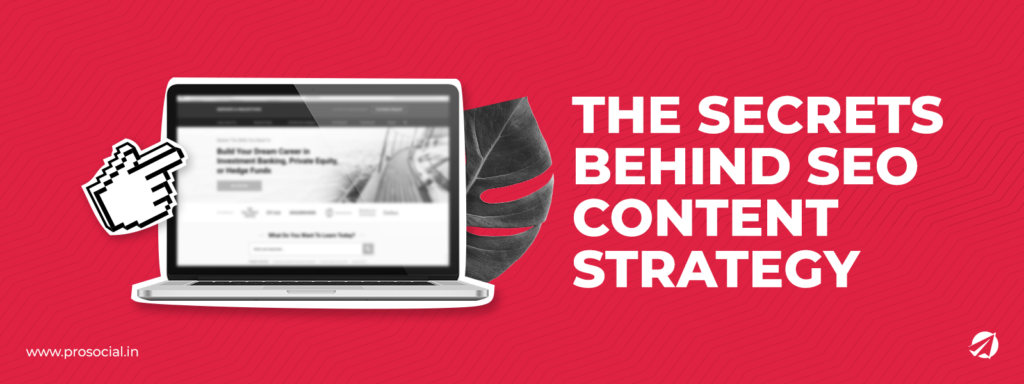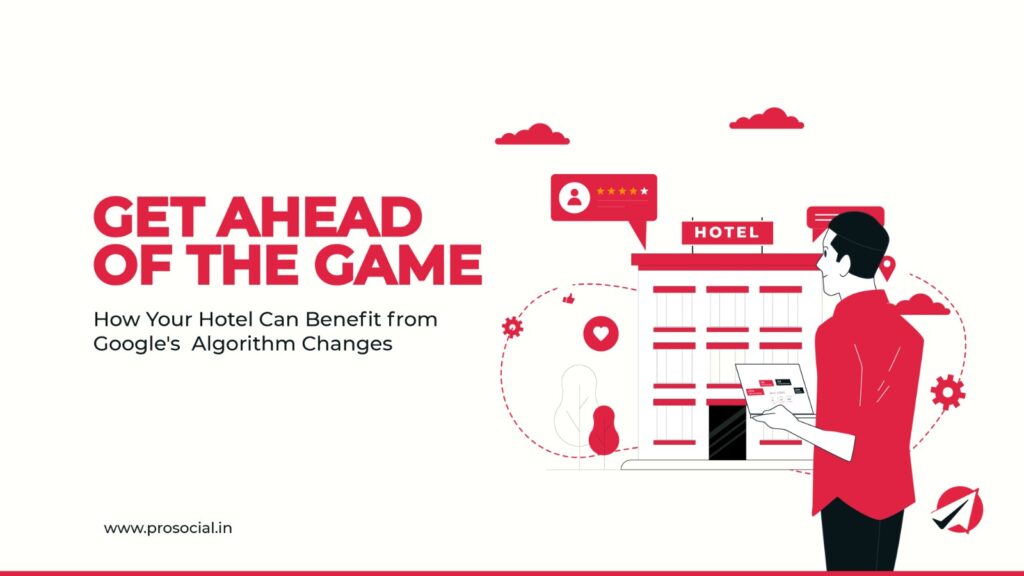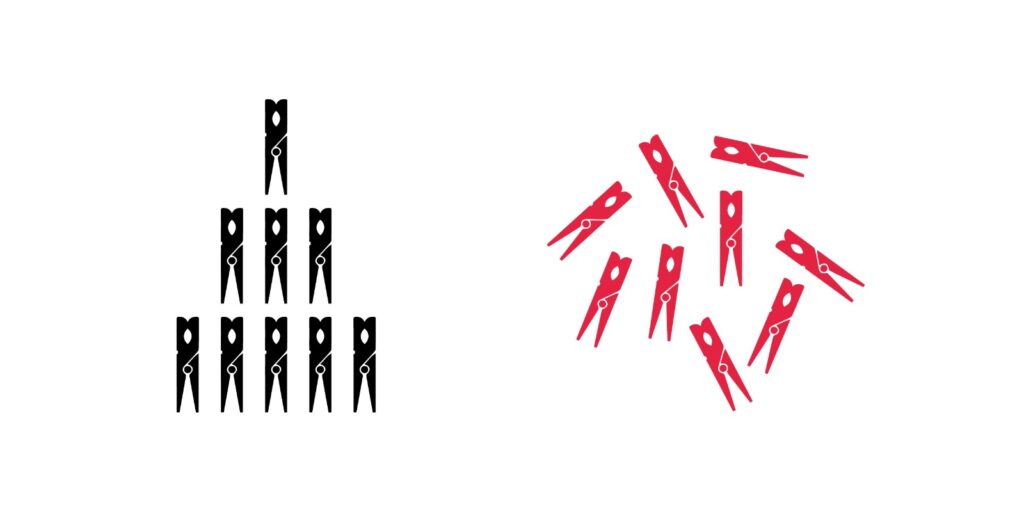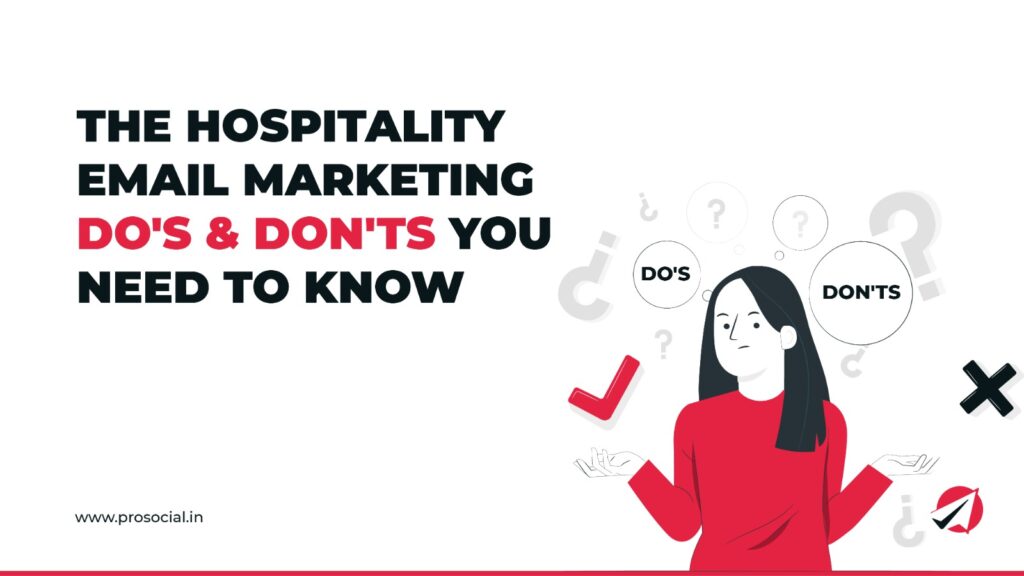In the ever-evolving and competitive hospitality industry, effective ways is vital for hotels to stay ahead and attract customers. With the advent of technology and changing consumer behavior, traditional hotel marketing methods are facing tough competition from modern approaches.
In this blog, we will delve into the pros and cons of both modern and traditional hotel marketing strategies to help you understand their differences and make informed decisions for your hotel’s marketing efforts.
Traditional Hotel Marketing
Traditional hotel marketing refers to conventional practices that have been used for decades. These methods typically include print media advertising, direct mail campaigns, billboards, and word-of-mouth referrals.
Pros
1. Familiarity and reliability: Traditional marketing methods have a long-standing history and are trusted by many consumers. Older generations may be more familiar with these methods, making them a potentially effective way to target specific demographics.
2. Tangible and personalized: Physical advertisements provide a tangible presence and can leave a lasting impression on potential guests. Direct mail campaigns can also be personalized, creating a sense of exclusivity and personal connection.
Cons
1. Limited reach and targeting: Unlike modern methods, traditional marketing strategies have relatively limited reach and targeting capabilities. It may be challenging to reach a broader audience or specific niche markets.
2. High costs and difficulty in tracking ROI: The cost associated with traditional ways, such as print advertisements and billboards, can be significant. Moreover, tracking return on investment (ROI) can be challenging, making it difficult to evaluate the effectiveness of these methods.
Modern Hotel Marketing
Modern hotel marketing encompasses a range of digital strategies leveraging technology and online platforms. These methods include social media marketing, influencer partnerships, search engine optimization (SEO), email marketing, and online booking systems. Here are the pros and cons:
Pros of Modern Hotel Marketing
1. Wider reach and better targeting: With digital market, you can reach a vast audience globally. Advanced targeting options enable precise audience segmentation, allowing you to target specific demographics or interest groups.
2. Cost-effective and measurable ROI: Digital methods are generally more cost-effective than traditional approaches. Additionally, the ability to track and measure results in real time allows for better evaluation of returns on investments.
Cons of Modern Hotel Marketing
1. Ever-changing landscape: The digital world evolves rapidly, requiring continuous learning and adaptation. Staying up-to-date with the latest trends and algorithms can be challenging for some hoteliers.
2. Potential saturation and competition: With the rise of social media platforms, many hotels are now operating within the digital space. Consequently, this can lead to increased competition and saturation, making it harder to stand out from the crowd.
Conclusion
Both traditional and modern hotel marketing strategies have their own set of pros and cons. Ultimately, finding the right balance in your hotel’s market approach is crucial. Consider your target audience, budget, and brand positioning to determine which methods will yield the best results for your hotel.
Remember, your hospitality marketing agency, Prosocial, is here to assist you in making informed decisions and achieving your goals. By combining the strengths of both traditional and modern strategies, you can create a comprehensive plan that maximizes your hotel’s visibility, attracts guests, and drives revenue growth in today’s dynamic marketplace.
